Published Oct 25, 2022
10 Times Characters Were Unjustly Accused on Star Trek
Beckett Mariner was wrongly blamed in the latest episode of Lower Decks; she’s not the only one.

StarTrek.com / Rob DeHart
Welcome back to The Lower Decks Connection, where we curate a watchlist of legacy Star Trek for you based around the latest episode of Star Trek: Lower Decks!
In Season 3’s penultimate episode of Lower Decks, “Trusted Sources,” a visiting reporter on the Cerritos puts Captain Freeman on edge. When FNN reporter Victoria Nuzé recounts past incidents involving the Cerritos, questioning Freeman's ability to lead missions, Freeman automatically assumes this was all her daughter Beckett Mariner’s doing. Believing this insubordination crossed a line, Freeman officially kicks Mariner off the Cerritos, transferring her to Starbase 80. With her girlfriend Jennifer and friends Boimler, Tendi, and Rutherford all also believing she purposely embarrassed the Cerritos, Mariner leaves feeling betrayed, ultimately resigning from Starfleet.
This is not the first time that someone was unjustly accused on Star Trek, and it certainly won't be the last. With that in mind, here are others who know exactly how Mariner is feeling.
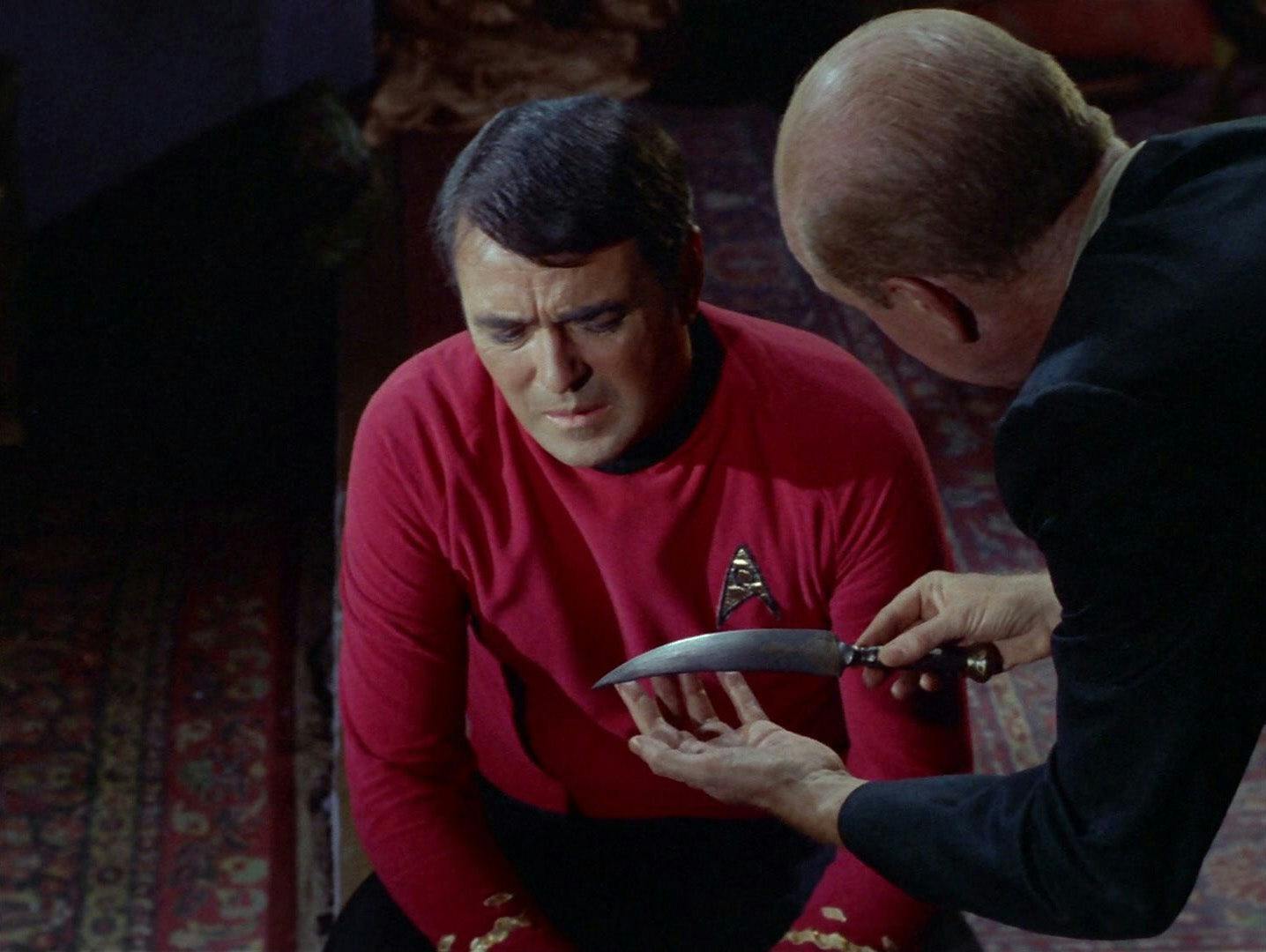
StarTrek.com
In the Season 2 episode, “Wolf in the Fold,” what was supposed to be a therapeutic shore leave trip meant to lift Scotty's spirits on Argelius II ends up being a nightmare scenario. After an evening out, Kirk and McCoy stumble upon a scene of a brutally murdered Argelian with the Starfleet engineer, nearby, bloodied and holding a knife. Soon, Scotty is accused of not only this crime, but the murders of two additional women — the Enterprise's medical technician and the Prefect's wife — as he was found near each victim, with the murder weapon in hand.
The compelling Robert Bloch teleplay clears Scotty of the crime upon revealing the true assailant of all the crimes — a monstrous incorporeal entity who assumes humanoid bodies, such as "Jack the Ripper" on Earth, to murder women and feed on their fear.
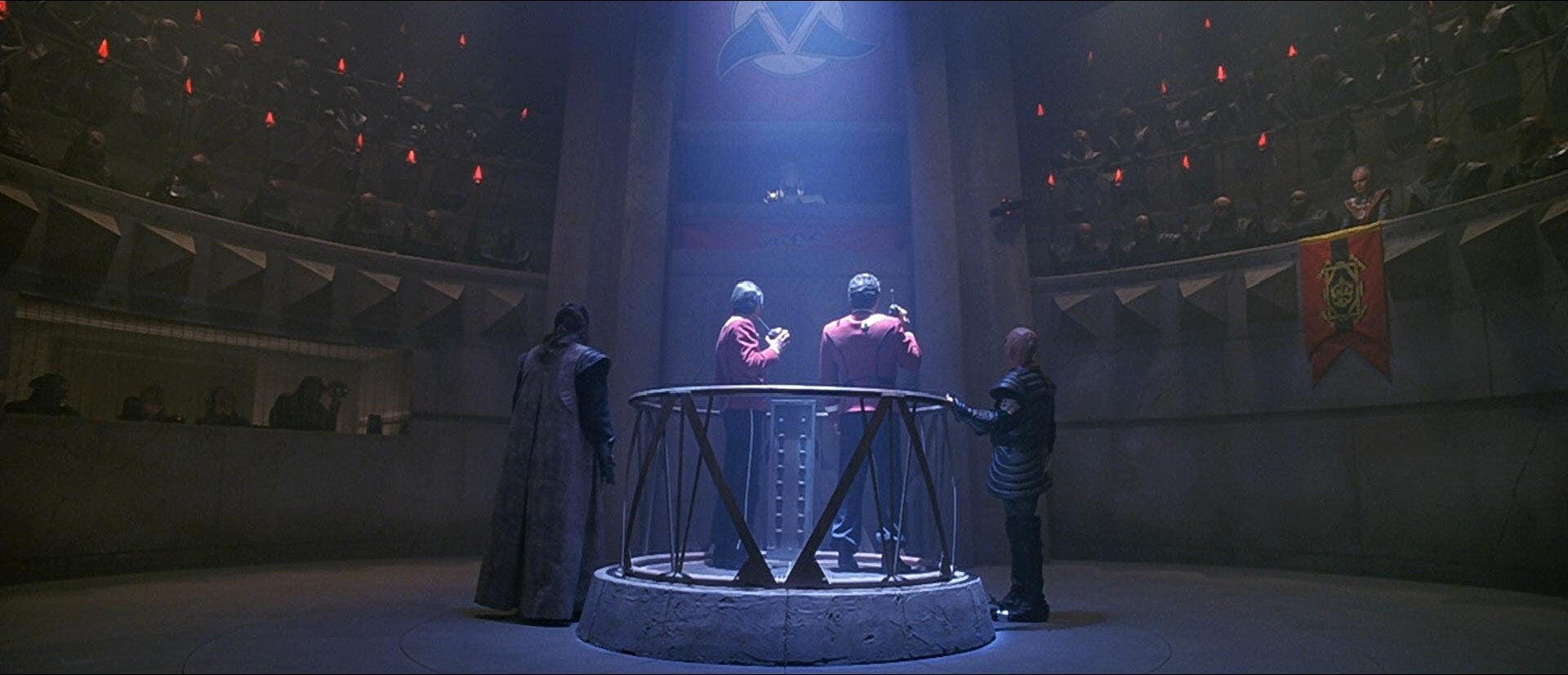
StarTrek.com
With the collapse of the Klingon Empire imminent following the destruction of the Klingon moon Praxis, the Federation uses the opportunity to negotiate peace with the Klingons in the sixth Star Trek film, The Undiscovered Country. Admiral Cartwright, along with the still embittered James Kirk whose son died at the hands of the Klingons, objects to conciliation with the Klingon Empire.
Following a tension-filled diplomatic dinner with the Klingon Chancellor Gorkon and his party aboard the Enterprise, the Federation starship appears to fire two torpedoes at the Klingon ship Kronos One as two men in Starfleet uniform board the Kronos, kill a Klingon crew, and mortally wound Gorkon. Under Interstellar Law, Klingon General Chang arrests Kirk and McCoy for the assassination of their Chancellor, where they will stand trial in a Klingon court. While they're innocent and eventually cleared after unearthing an organized conspiracy at play, Kirk must grapple with his prejudice and biases, as seen in the most damning evidence presented at trial — his own personal logs. “I’ve never trusted Klingons, and I never will. I have never been able to forgive them for the death of my boy.”
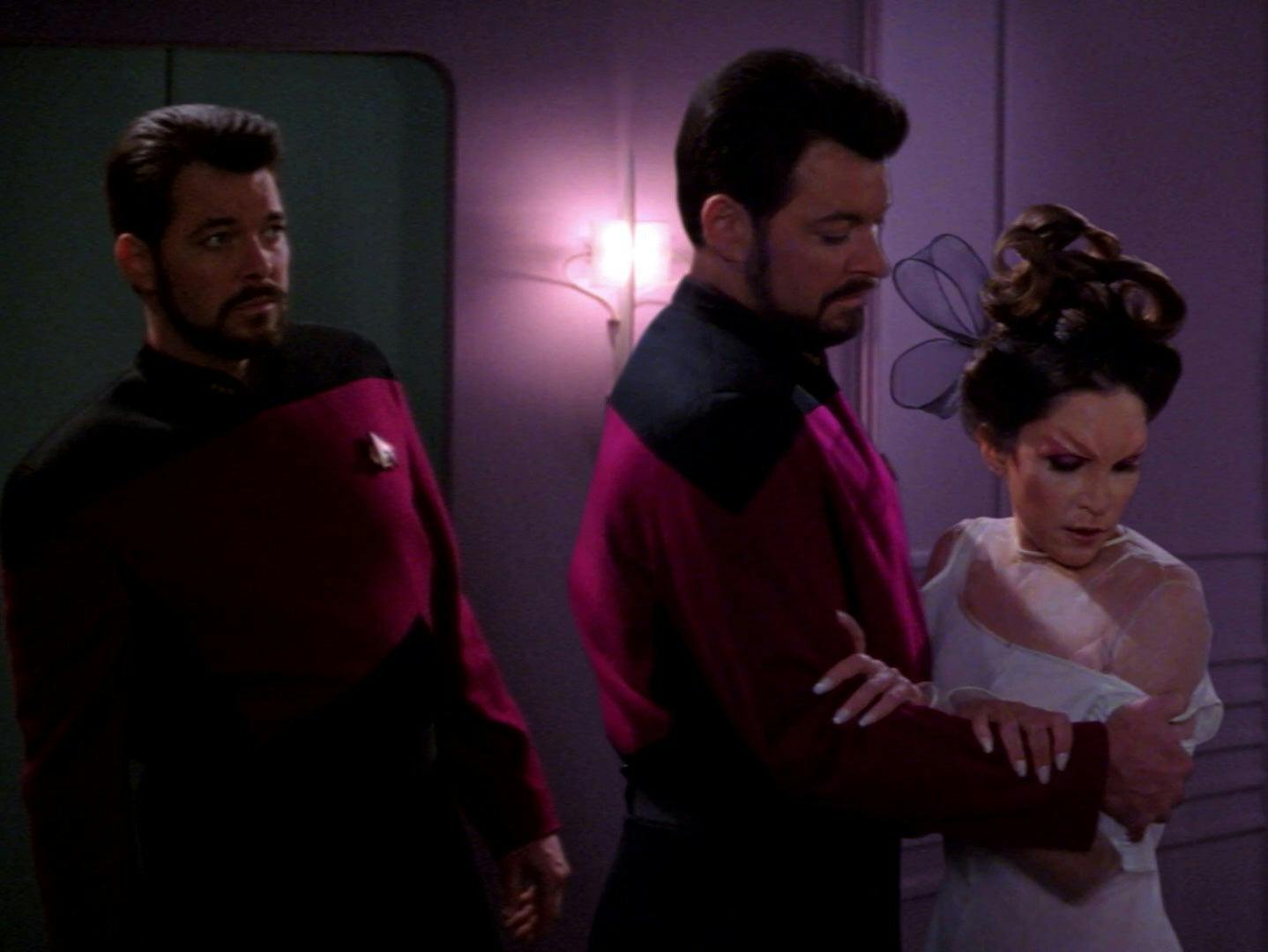
StarTrek.com
In the technically-complex third season production, "A Matter of Perspective" forces the Enterprise-D to present multiple points of view when First Officer Will Riker is accused of murder of a head researcher at the Tanuga IV station.
Picard refuses to allow an investigator to extradite Riker. Before even deciding if they'll go to trial, they use the Holodeck to recreate the events of the mission on Tanuga IV from the testimonies submitted by Riker, the researcher's wife, and the research assistant. While Riker is rightfully cleared of the accusation as the episode demonstrates the actions of an ambitious man who sought to exploit technological advancements for monetary gain, the recreation of events delineates proves how hard it is to achieve objective truth as human recollection is unreliable.

StarTrek.com
In the third season episode "Sins of the Father," Worf discovers not only that he has a brother he never knew existed but that the Klingon High Council has accused his deceased father Mogh of conspiring with the Romulans on their assault at Khitomer, which resulted in the deaths of 4000 Klingons.
In his pursuit of clearing his family's honor, Worf becomes embroiled in a Klingon political power struggle. By episode end, with his refusal to drop his challenge against the High Council's charges, Worf faces discommendation as punishment from his father's "treason," and protects his brother from the alternative, which would have been execution. We recommend watching this storyline play out across the course of four episodes (including "Reunion," "Redemption, Part 1," and "Redemption, Part 2").
Deep Space Nine — “Dax”
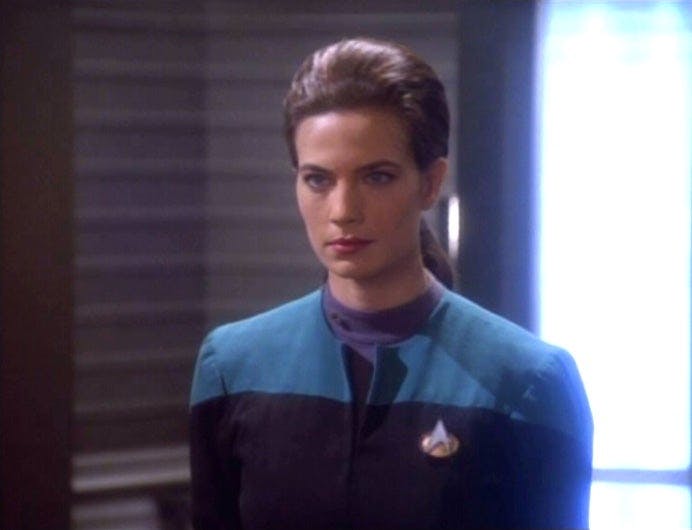
StarTrek.com
After Lt. Jadzia Dax is kidnapped on the Deep Space 9 station and taken hostage, Sisko and the crew learn their friend and colleague is charged with treason and the murder of a Klaestron general, killed during the Klaestron Civil War. General Tandro is lauded as a national leader, providing the troops the necessary boost towards victory. Thirty years later, the late general’s son Ilon Tandro, obsessed with retribution, now believes he has the culprit responsible for his father’s murder — Curzon, Dax’s previous host.
Complicating matters, Dax refuses to confide in Sisko with the actual events that happened three decades prior and accepts the judgment. The Season 1 episode sheds light on the Trill symbiont’s relationship with a host body and the question of a symbiont host facing justice for an alleged crime committed by the previous host.
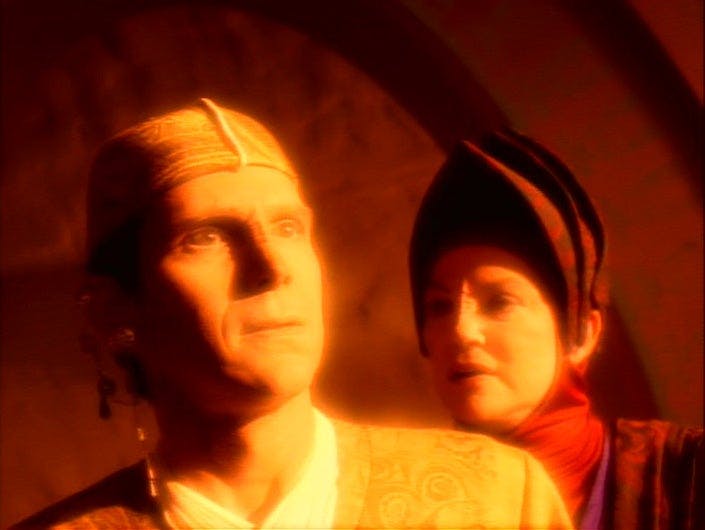
StarTrek.com
With the election for the next Bajoran Kai upon them, the spiritual leader, and Major Kira Nerys’ lover, Vedek Bareil is the front runner over the fanatical Vedek Winn Adami. It is widely known that the late Kai Opaka personally hand-selected Bareil as her successor.
After her previous attempt to assassinate Bareil was unsuccessful, Winn sets her sights on framing him as a collaborator during the Cardassian occupation of Bajor. After Winn privately confers with the known Cardassian collaborator Kubus, who wants to live his remaining years back on Bajor, she tells Major Kira she has offered Kubus sanctuary in exchange for information on the Kendra Valley Massacre where 43 Bajoran freedom fighters, including Kai Opaka’s son, were killed by the Cardassians. She pressures Kira to aid in her investigation, with the implication that Vedek Bareil will be exposed as the collaborator responsible for the massacre, by offering her the opportunity to prove his innocence before the accusations are made public. The Season 2 episode demonstrates not only the cruelties of war and what must be sacrificed to prevent a far larger tragedy, but also the cost of protecting those you love.
Voyager — “Ex Post Facto”
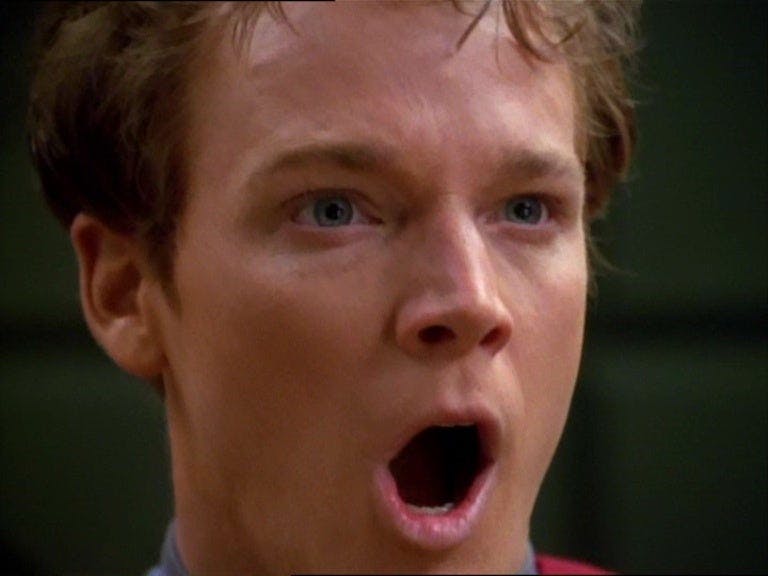
StarTrek.com
What happens when you're accused for a crime you didn't commit and sentenced to relive the final moments of the victim's life every 14 hours? Unfortunately, that's exactly what happens to Tom Paris in the Season 1 episode.
Paris is accused of murdering an engineering physicist due to his interest in the victim's wife. Also indisputable are extracted images from the victim's memories which demonstrate Paris' culpability. The Voyager scrambles to launch their own investigation to prove the officer's innocence as the sentencing implant inflicts serious brain damage. As Tuvok mindmelds with Paris as he relives another 14-hour cycle, he uncovers a far more nefarious crimnal at play.
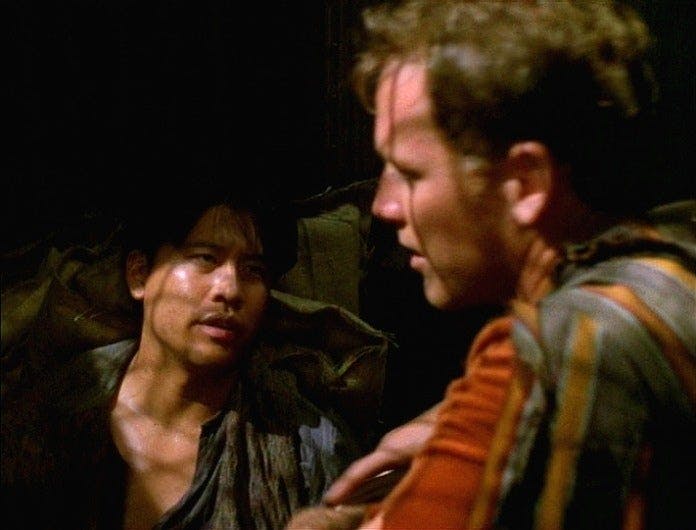
StarTrek.com
In this third season Voyager episode, Paris isn't the only one accused of a crime. This time, his buddy Harry Kim is along for the ride as they are both falsely accused of a terrorist bombing that killed 47 Akritirians. Because it can never be an uneventful sentencing, they're detained in a prison where inmates are given "the clamp," a neural implant that affects their nervous system driving them into madness. Kim is forced into action as Paris is brutally stabbed by another inmate.
Despite the Voyager tracking down the actual terrorist bombers, Akritirian policy refuses to surrender Paris and Kim in a trade; their convictions stand. Thankfully Janeway and Tuvok slide down the prison chute to rescue the duo and make their escape before the clamp had compelled them to nearly kill each other.
Enterprise — “Detained”
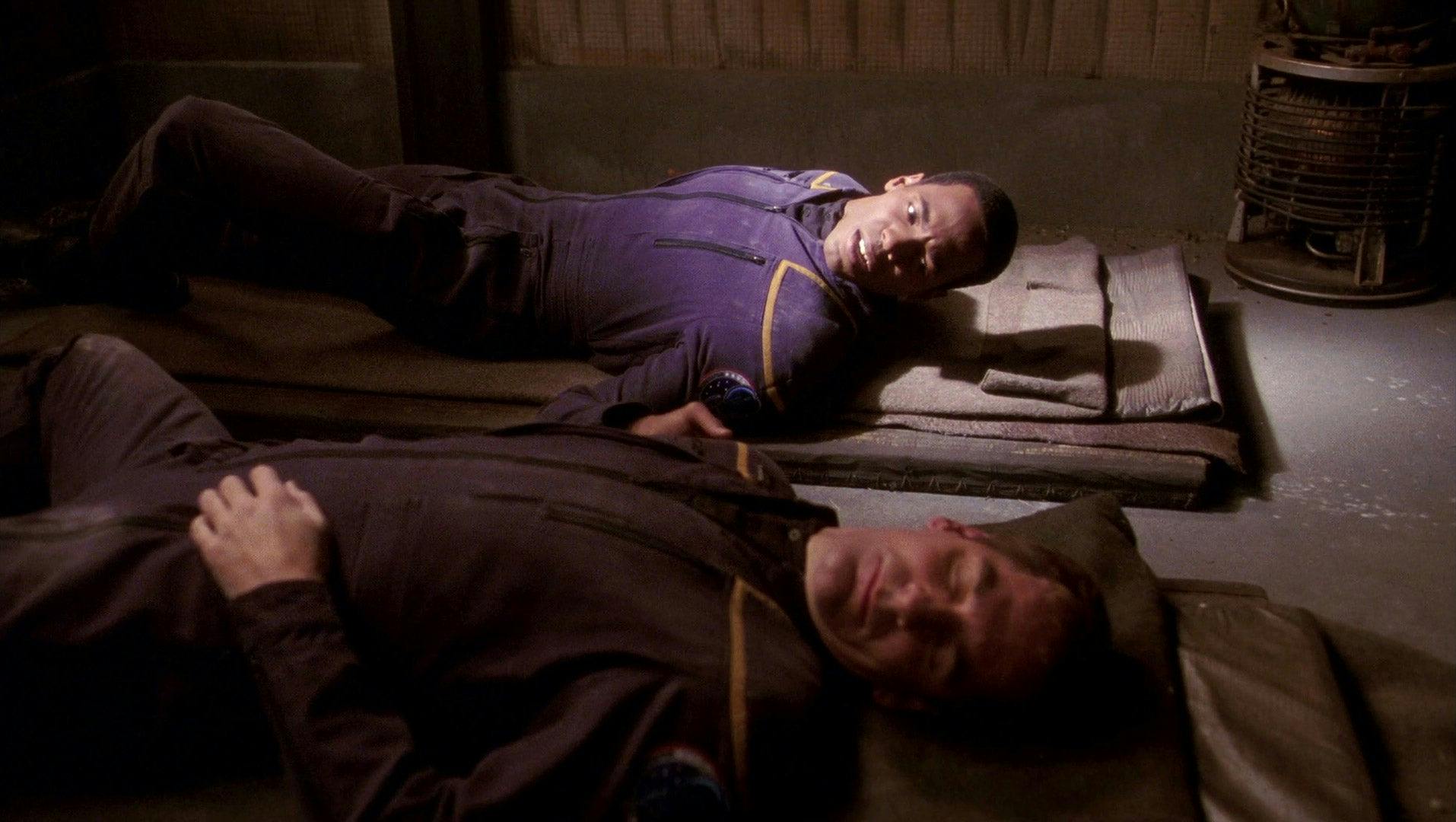
StarTrek.com
Ensign Mayweather and Archer wake up in a dilapidated prison with no knowledge of how they arrived there. The two Starfleet officers learn they had somehow trespassed in a Tandaran militarized zone. While they're technically not detained since the Tandarans determined they were not Suliban, due to strict regulations, they cannot be released just yet.
In the detention center, the officers learn that several of the Suliban are unjustly detained — they neither belong in the Cabal nor are they genetically-enhanced. The Suliban had been displaced and forced to adopt a nomadic life for the past several hundred years as a result of the war between the Tandarans and the Cabal. Mirroring the detainment of Japanese-Americans during World War II, Archer realizes the Suliban are detained for "their own protection" due to the Tandarans' paranoia. The Tandarans try to strong arm Archer into relinquishing more intel on the Suliban, which the captain refuses. As the Enterprise tries to track down Mayweather and Archer, the captain ponders what lies ahead for them should they escape the detention center as they no longer have an inhabitable homeworld to return to.
Enterprise — “Canamar”
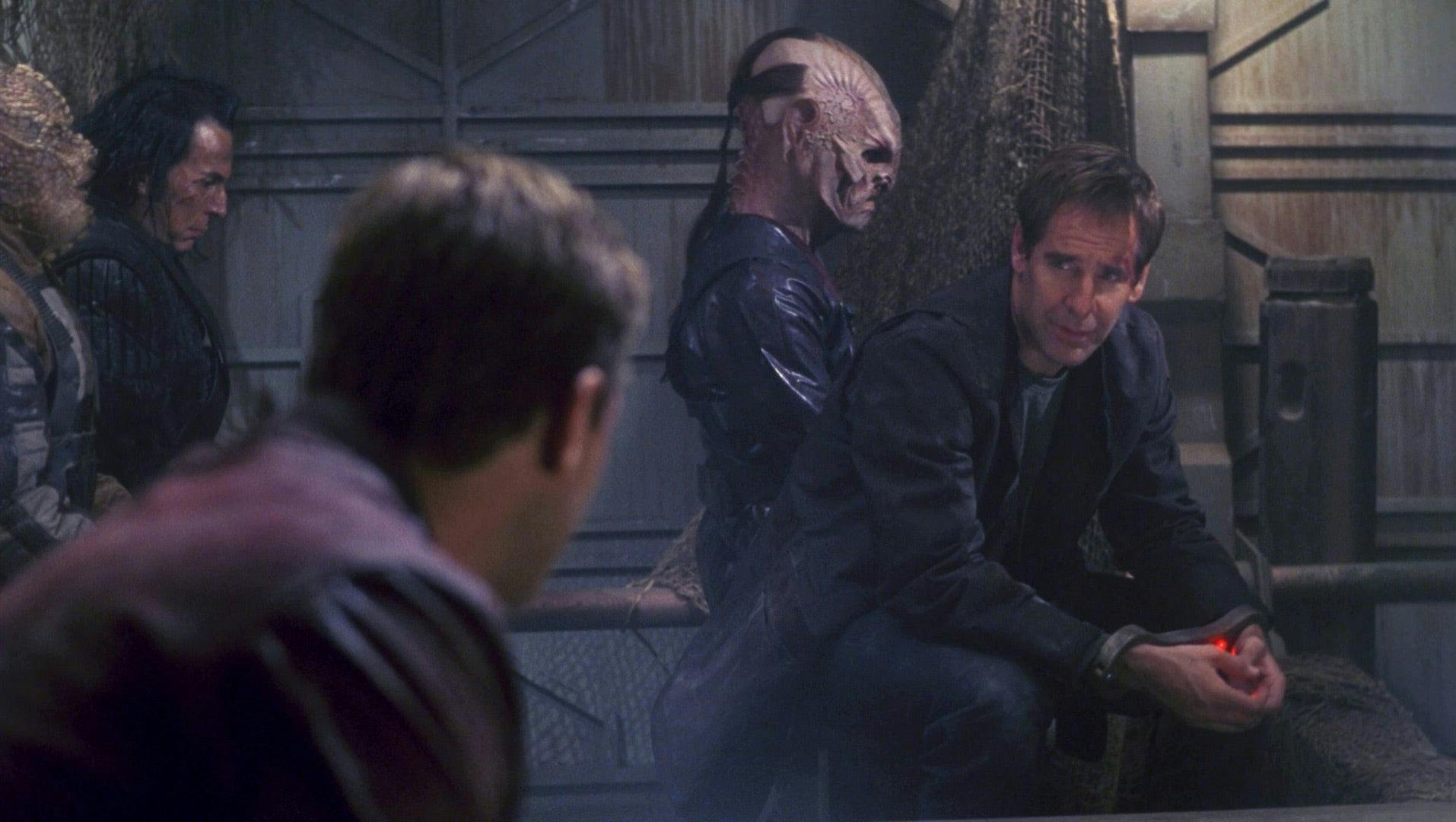
StarTrek.com
In the second season Enterprise episode, mistaken for smugglers, Archer and Trip Tucker are shipped to the infamous penal colony known as Canamar. After T'Pol clears up the misunderstanding and Archer and Trip are set to be released, another prisoner Kuroda breaks free. Unaware of their release, Archer offers to be of service to Kuroda offering to pilot the prison ship, in order to covertly transmit a distress signal to the Enterprise.
The Enolians decide to eliminate the unwarranted stress by destroying the prison transport despite Archer's presence aboard it. As Kuroda warms up to the captain, he suggests Archer join him on his next endeavor, while Archer learns Kuroda himself was innocent of any crimes when he was first sent to Canamar. It's there where he was forced into a life of crime just to survive. Despite understanding the unfair hand Kuroda was dealt, Archer conspires against him. With the arrival of the Enterprise crew, but betrayed by the person he had grown to respect, Kuroda insists on dying on the decaying orbit than having to return to Canamar. Embittered by the whole ordeal, Archer wonders how many others are condemned to Canamar who didn't belong there.
Interested in more Legacy episodes that cover those unjustly accused that read like crime procedurals, definitely take a look at the Lower Decks Connection episodes of when captains took the stand.
It doesn’t stop at just Legacy Trek — Circling back to Lower Decks, Captain Freeman is wrongly accused of attacking the Pakled Planet as seen in “First First Contact” and “Grounded.” Star Trek: Discovery kicks off its series (“The Vulcan Hello,” “Battle at the Binary Stars,” and “Context is for Kings”) with Michael Burnham unjustly accused of starting the Federation-Klingon War, charged with mutiny during a court martial, and stripped of rank. Whereas on Star Trek: Picard, the La Sirena crew learns of Immigration and Customs Enforcement (ICE) on 21st Century Earth (“The Watcher”). They detain Captain Cristóbal Rios and Dr. Teresa Ramirez; and once ICE has you, you’re gone, “no trial, no paper trail.”
Christine Dinh (she/her) is the managing editor for StarTrek.com. She’s traded the Multiverse for helming this Federation Starship.
Star Trek: Lower Decks streams exclusively in the United States and Latin America on Paramount+, and is distributed concurrently by Paramount Group Content Distribution on Amazon Prime Video in Australia, New Zealand, Europe, Japan, India and more, and in Canada on Bell Media’s CTV Sci-Fi Channel and streams on Crave.
Star Trek: Discovery Seasons 1-4 are currently streaming exclusively on Paramount+ in the U.S. Internationally, the series is available on Paramount+ in Australia, Italy, Latin America, the U.K. and South Korea, as well as on Pluto TV in Austria, France, Germany, Italy, Spain and Switzerland on the Pluto TV Sci-Fi channel. It will also stream exclusively on Paramount+ in Italy, France, Germany, Switzerland and Austria later this year. In Canada, it airs on Bell Media’s CTV Sci-Fi Channel and streams on Crave. STAR TREK: DISCOVERY is distributed by Paramount Global Content Distribution.
Star Trek: Picard streams exclusively on Paramount+ in the U.S. and is distributed concurrently by Paramount Global Distribution Group on Amazon Prime Video in more than 200 countries and territories. In Canada, it airs on Bell Media’s CTV Sci-Fi Channel and streams on Crave.
Stay tuned to StarTrek.com for more details! And be sure to follow @StarTrek on Facebook, Twitter, and Instagram.

